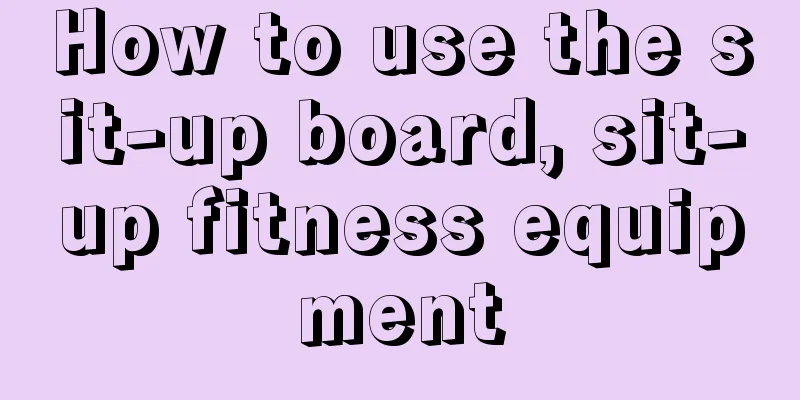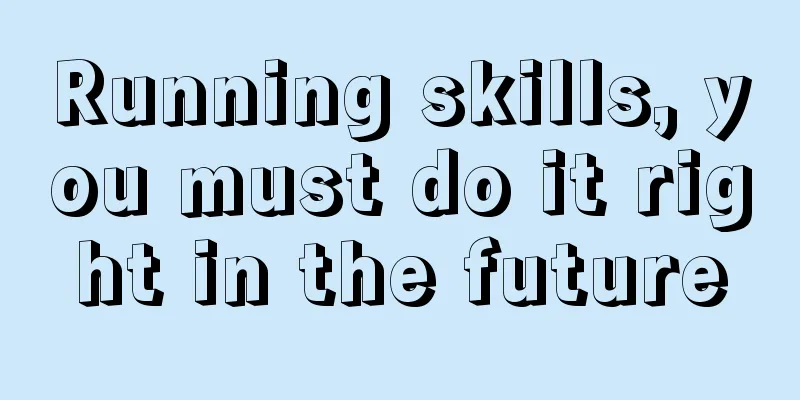How to use the sit-up board, sit-up fitness equipment

|
What is the best way to use the sit-up board? 1. The position of hands: In traditional sit-ups, the fingers of both hands are crossed and placed behind the head. During the sit-up process, people often use the strength of their hands to lift their heads, which can easily cause strain on the neck muscles. The correct way is to place your hands slightly next to your ears. If you are doing it for the first time, you can cross your hands and place them on your abdomen to reduce the difficulty. When sitting up, you should use your abdomen to exert force, instead of using your hands to lift your head up as we usually do. 2. Force point: When hooking the feet on the lower sponge pad of the supine board, many people will use their feet to exert force to lift the body up. This will increase the burden on the thigh and hip flexor muscles , thereby reducing the effect of the abdominal muscles. When the external force increases, people tend to use their hips to complete the sit-up movement, which can easily cause damage to the waist and coccyx. When standing up, use your abdominal muscles to pull yourself up, and keep your back slightly bent. Don't stretch your back straight, otherwise it will easily cause back muscle strain. You cannot use brute force when doing a leverage project. If you can't get up, you need to rest. 3. Speed When we do physical fitness tests, we calculate it by how many times per minute, which leads many people to think that the faster you can do sit-ups, the better. This is a common problem among many sit-up practitioners . In fact, this is not the case. The faster the speed, the less pressure on the abdominal muscles. The correct method should be to slow down as much as possible and exercise the control ability of the abdominal muscles. You will find that when you do it in slow movements, your abdomen will have a burning feeling, which means the fat is burning. Exhale slowly when you stand up, and take a long breath when you lie down, controlling the rhythm. 4. Standing height: After standing up from traditional sit-ups, you need to let your forehead touch your knees before returning to the original position. That is, the upper body quickly rises from a lying position to about 90 degrees. In fact, the burden on the rectus abdominis has not reached the heaviest stage before rising to 45 degrees. Because in this starting phase , there is a synergistic effect of the sternocleidomastoid muscle, pectoralis major, intercostal muscles, psoas minor, psoas major and iliacus muscles. In the process of exceeding about 45-90, due to the continuous shortening of the resistance arm from the upper center of gravity to the hip fulcrum, the load of the crane role played by the abdominal muscles becomes smaller and smaller, and the burden of the rectus abdominis does not reach the heaviest. Only when the upper body is raised to 45 degrees is the best time for the rectus abdominis to develop resistance resistance. Therefore, sit-ups are not necessarily more effective the higher you stand. The correct way is to pause for a while at about 45 degrees of your body, then slowly return to the starting position to fully exercise the rectus abdominis. |
<<: Warning: Be careful that sit-ups will make your waist thicker
>>: Sit-ups and aerobics help you lose belly fat
Recommend
Take stock of things you shouldn't do after exercise, be careful of body "poisoning"
Exercise is a very good way to exercise the body....
What are the methods for exercising the deltoid muscles without equipment?
Deltoid muscle training is a part that is very ea...
How to become a muscular man
The most popular word this year is probably the w...
How long after dinner is the best time to run?
Nowadays, the physical fitness of many people is ...
How long after dinner is good to run?
Many people like to exercise at night, which is m...
Can skipping rope help you lose weight?
Can skipping rope help you lose weight? No one ca...
What are the benefits of weighted squats?
Everyone hopes to have a healthy body, but in lif...
How to lose weight and slim down your legs?
Losing weight and slimming legs is something that...
How to increase running speed?
Running is a very healthy sport. Modern people li...
What are some health exercises suitable for the elderly?
Everyone knows that as people age, their organs a...
How effective is skipping rope for weight loss?
Rope skipping has always been a method of exercis...
How to exercise the buttocks muscles
In our lives, many people hope to have an S-shape...
How to protect your knee joints during exercise?
Many people choose to exercise to improve their k...
What are the benefits of playing badminton?
Badminton is a very common mass sport that is lov...
Can you increase your height by doing pull-ups?
Pull-ups are one of the main sports to test the p...









